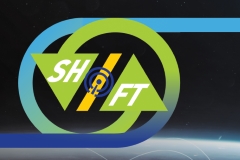SHIFT - Sustainable Technologies Enabling Future Telecom Applications is a KDT JU co-funded project supported by 43 partners, which aims to make important contributions to the "twin transition", through innovations in component and system technologies for advanced telecommunications.
The project started in December 2022 with the aim of reaching four main objectives:
- Develop new Semiconductor and packaging Technologies for very high frequencies, achieving better energy efficiency and output power;
- Develop new Semiconductor Technology platforms associated with these semiconductor technologies, with corresponding tests, characterization, and modelling methodologies needed for very high frequencies;
- Demonstrate the progress of the new semiconductor technologies by innovative and competitive System Demonstrators that will integrate MMICs designed with the developed and proposed semiconductor technologies, covering domains for:
- Wireless (network access and backhaul) and Fiber optics Telecommunication systems;
- Satellite telecommunication and Earth Observation systems;
- Demonstrate the economic and operational impact of these systems while reducing their environmental impact.
SHIFT consortium will develop innovative semiconductor and packaging technologies and their validation with demonstrators for telecommunication areas such as 5GNR (Beyond 5G) and 6G wireless network access and backhaul, ultra-high speed optical links between servers, satellite telecommunications, and Earth observation. SHIFT will also contribute to environmental and societal concerns, with an analysis of the life cycle of telecommunications products, through their manufacturing chain, their operational use, and their recycling. Finally, SHIFT project supports Europe's will for sovereignty in semiconductors, by accelerating the development and dissemination of new European technologies, and by enabling many young engineers and researchers to train, thanks to the most recent results. Thus, SHIFT is an ambitious project and sustainable development for innovative European companies.
In the frame of the Demonstrator # 8 Electronically Steerable Ka-Band Array (ESKaA) Planetek is responsible for evaluating the performances of the simulated operational scenario for the Earth Observation case. The simulated link between the ESKaA demonstrator and the receiver station will be used to assess signal robustness and data integrity across the link, identify possible bottlenecks and test the maximum hop length and capacity.
In addition, Planetek will analyse the applications scenario to identify where the phased array can open new possibilities in space connectivity.
More information can be found here https://www.shiftkdt.eu/
 ACKNOWLEDGMENT: SHIFT receives funding within the Key Digital Technologies Joint Undertaking (KDT JU) - the Public-Private Partnership for research, development and innovation under Horizon Europe – and National Authorities under grant agreement n° 101096256.
ACKNOWLEDGMENT: SHIFT receives funding within the Key Digital Technologies Joint Undertaking (KDT JU) - the Public-Private Partnership for research, development and innovation under Horizon Europe – and National Authorities under grant agreement n° 101096256.
Funded by the European Union. Views and opinions expressed are however those of the author(s) only and do not necessarily reflect those of the European Union or the granting authority. Neither the European Union nor the granting authority can be held responsible for them.






